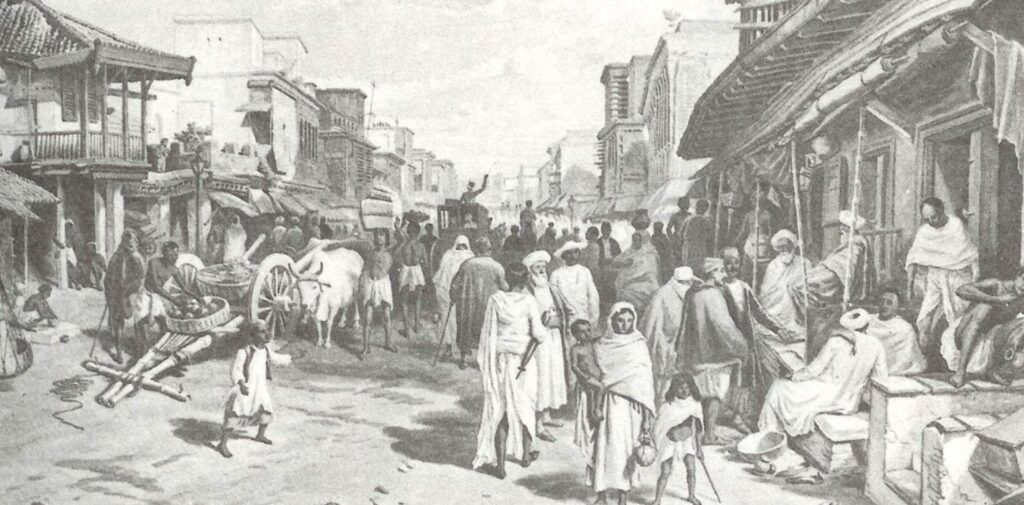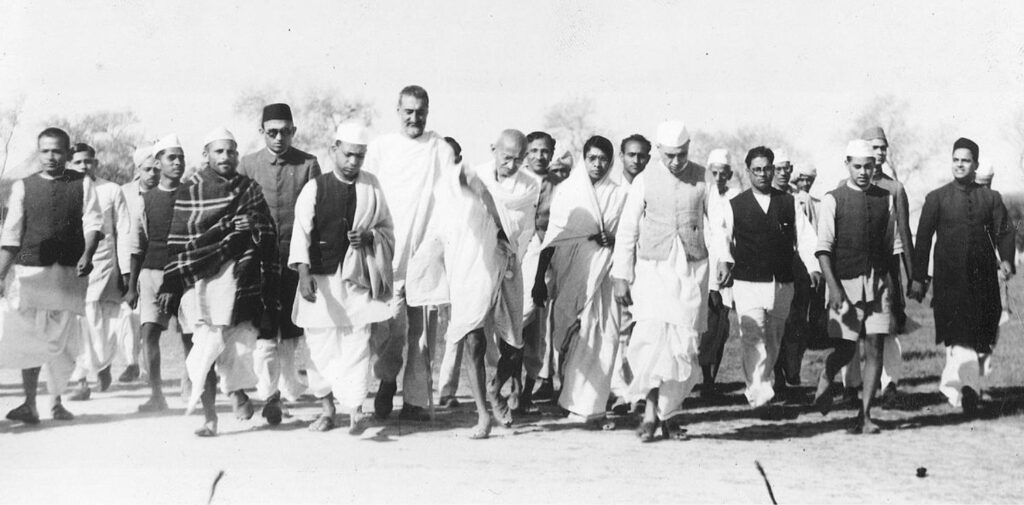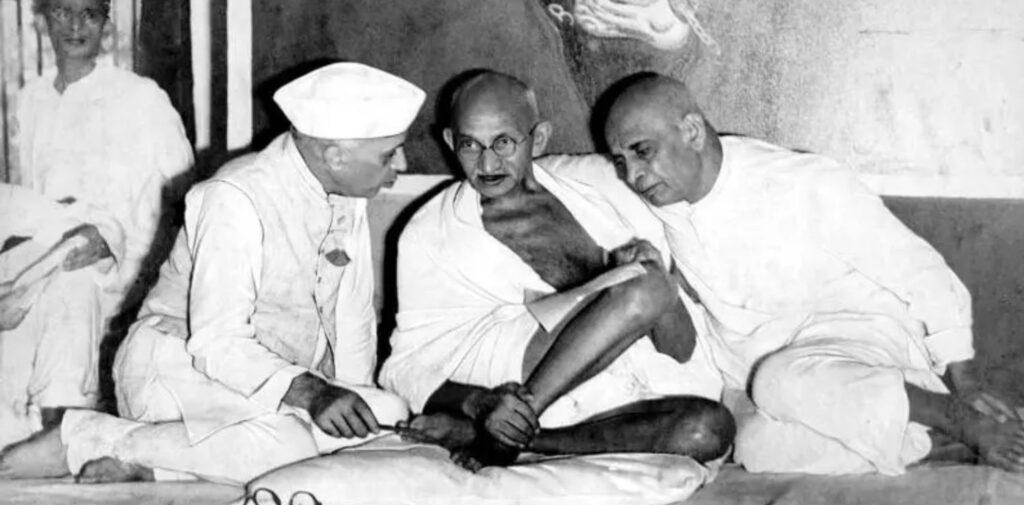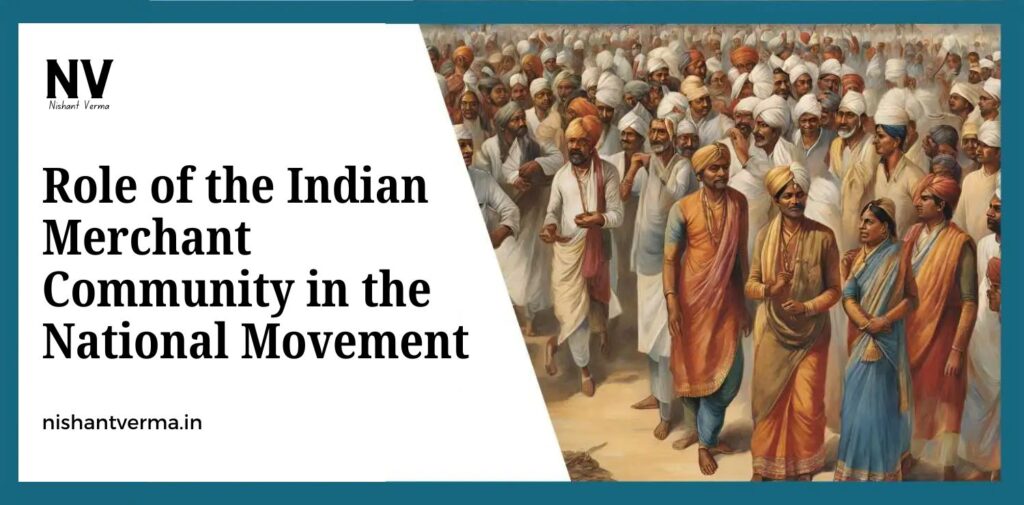The Indian National Movement was a long struggle for independence from British colonial rule. During this time, various groups played crucial roles in shaping the direction of the fight for freedom. One of the often overlooked groups in this movement was the Indian Merchant Community. These were the traders, business owners, and industrialists who, despite their economic power and influence, did not receive the recognition they deserved in the mainstream narrative of India’s struggle for independence.
In this article, we will explore the significant role played by the Indian merchant community, their contribution to the independence movement, and how they were marginalized by political leaders like Jawaharlal Nehru and the Gandhi family. Many historians have overlooked this community’s efforts, focusing mainly on the prominent political leaders. However, the merchant community’s actions were key in challenging colonial rule and pushing for a more robust and diverse approach to the struggle for freedom.
The Importance of the Merchant Community
The Indian merchant community consisted of a wide range of business people from different parts of the country, including traders, financiers, industrialists, and entrepreneurs. They played a pivotal role in the economy and were essential in shaping India’s economic landscape. During colonial rule, the British government depended heavily on the Indian merchants for trade, revenue collection, and maintaining economic dominance. These merchants often had to navigate the challenges posed by British policies, including high taxes, export duties, and the manipulation of trade routes, which favoured British interests.
The merchant class was not just confined to the cities or big business hubs. It had its roots deeply embedded in the local economies and everyday lives of the people. They not only supported trade but were also involved in providing jobs, creating industries, and building infrastructure.

The Merchant Community and the Freedom Struggle
While most historical accounts of the Indian freedom struggle highlight the roles played by leaders like Mahatma Gandhi and Jawaharlal Nehru, the contributions of the merchant community have often been downplayed. The merchants’ interests were not always aligned with the nonviolent movement led by Gandhi, who, according to some, favoured the rural population over the urban industrialists.
- Economic Independence: One of the key contributions of the merchant community to the independence movement was their push for economic self-reliance. Leaders like G.D. Birla, Lala Lajpat Rai, and others understood that economic independence was just as important as political freedom. They saw British colonial policies as a means of exploiting India’s resources for the benefit of Britain, and they were determined to break this economic chain. The merchant class advocated for Indian-owned industries, the establishment of a strong national market, and the reduction of British control over Indian trade.
- It was these efforts to create a self-sustaining economy that led to the growth of several key industries, including textiles, steel, and jute. However, their efforts were often overshadowed by the political leadership of figures like Nehru and Gandhi, who were more focused on rural agrarian reforms and nonviolent mass movements rather than building up the industrial sector.
- Support for the Swadeshi Movement: The Swadeshi Movement, which aimed at boycotting British goods and promoting indigenous industries, was largely supported by the merchant community. In the early 20th century, Indian merchants saw the necessity of encouraging the production of goods in India to free the country from British economic control. They organized campaigns, established new industries, and helped popularize the idea of Swadeshi or self-reliance among the masses.
- This economic nationalism was crucial to India’s independence because it weakened the British grip on India’s economy. However, the movement’s impact was not fully appreciated by Gandhi and Nehru, who were more focused on symbolic protests, such as the Salt March, which, although significant, did not directly address India’s economic independence in the same way as the merchant community’s industrial efforts.

The Role of Gandhi and Nehru in Marginalizing the Merchant Community
While figures like Gandhi and Nehru are celebrated for their contributions to India’s independence, their policies and leadership often disregarded the contributions of the merchant community. The rise of the Gandhian approach to the independence movement, especially after the 1920s, led to a shift in focus towards nonviolent resistance and peasant movements. Gandhi’s leadership was highly influential, but his focus on nonviolent protests and mass movements overshadowed the role of industrialists and merchants in shaping the country’s future.
- Gandhi’s Rural Focus: Gandhi’s ideas about India’s independence were heavily shaped by his vision of rural self-sufficiency. He believed that India’s future lay in empowering the rural masses, focusing on agriculture, and promoting hand-spinning and hand-weaving (the famous Khadi movement). While this was an important initiative, it led to a marginalization of urban, industrial, and merchant interests. Gandhi’s neglect of the merchant community, especially the powerful industrialists who could have contributed more significantly to India’s economy, caused resentment among the business class.
- Nehru’s Socialist Leaning: Jawaharlal Nehru, India’s first Prime Minister, also played a significant role in sidelining the merchant community in the post-independence period. Nehru, a strong advocate for socialism, focused on state-controlled industries and the centralization of economic power. While his focus on industrialization helped India build a modern economy, his policies did little to promote the interests of private businesses, especially those of the merchant community.
- Nehru’s economic policies, which included nationalizing key industries and focusing on public sector enterprises, alienated many of the leading industrialists and merchants. This socialist outlook led to a lack of cooperation between the government and the merchant community, further stifling economic growth in the country. Nehru’s failure to recognize the importance of the merchant class in the economic development of India resulted in a strained relationship between the government and the business community.

The Aftermath: A Missed Opportunity for India’s Economic Growth
The negligence towards the merchant community by the leaders of the time led to a lack of collaboration between political leaders and business leaders. Instead of fostering an environment where both could work together for India’s development, the Gandhi-Nehru leadership marginalized a crucial section of society. This led to a situation where India’s economic policies after independence, although well-intentioned, were at odds with the realities of the economy and stifled the potential of the business class.
In the years following independence, the industrial growth that could have been achieved with the support of the merchant community was hindered by state control, socialist policies, and the lack of trust between the government and the business community.
Conclusion: Indian Merchant Community
The merchant community played a pivotal role in India’s fight for freedom. They pushed for economic independence, supported the Swadeshi Movement, and created industries that were crucial to weakening the British economic hold over India. However, their contributions were often overshadowed by the leadership of figures like Gandhi and Nehru, who focused primarily on nonviolent resistance and rural empowerment. In hindsight, the marginalization of the merchant community during the freedom struggle and after independence was a missed opportunity for India’s economic growth.
The real culprits behind the lack of recognition of the merchant community’s role in the national movement were the leaders who, while brilliant in their own right, failed to understand the significance of building a strong and diversified economy. Had they embraced the merchant community and their vision for India, the country could have emerged as a stronger economic power much sooner.




